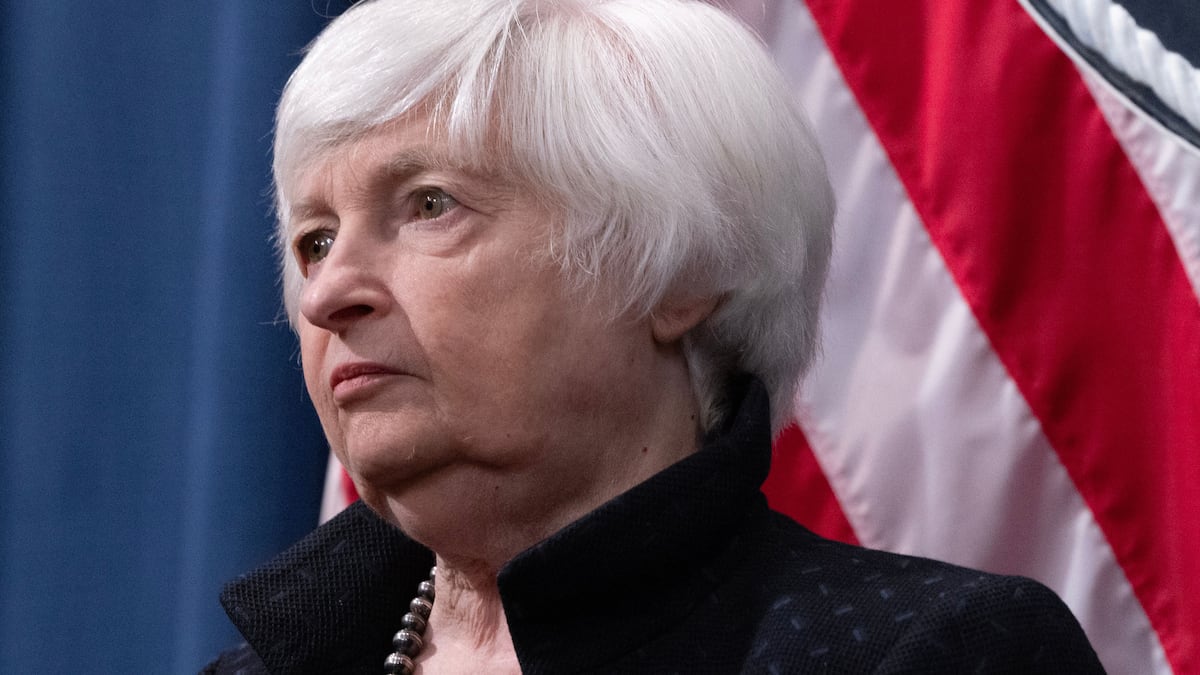- New Treasury regulations mandate customer background checks for DeFi front-ends.
- The regulations spare protocols, but industry says they still threaten US DeFi.
US-based websites and crypto wallets that provide easy access to the world of decentralised finance must perform background checks on customers and record their every transaction starting in 2027, the Treasury Department said Friday.
Crypto developers and attorneys have long warned the rules could pose an existential threat to decentralised finance, the blockchain-based financial software designed to cut out middlemen such as banks.
As of Friday, more than $179 billion in crypto had been deposited across the thousands of DeFi protocols tracked by DefiLlama.
The vast majority of that crypto has been deposited through user-friendly websites and applications, or front-end services, which enable people with little technical expertise to use DeFi protocols.
According to the new regulations, front-end services and wallets that let users swap crypto are brokers. As such, they will have to begin collecting vast amounts of customer data in 2027 in the name of preventing tax evasion and helping customers report their taxes to the Internal Revenue Service.
The rules are less onerous than many had feared — self-custody crypto wallets without a swap function and DeFi protocols themselves appear to have been spared the broker designation. But the industry has vowed to fight them.
“Today’s broker rulemaking by the IRS and Treasury — days before the end of the year — is a disappointing, but expected, final attempt to send the American crypto industry offshore,” Kristin Smith, CEO of crypto lobbying firm The Blockchain Association, said in a statement.
‘Kill the dream’
In June, the Treasury Department finalised rules that require certain crypto businesses to give customers annual forms detailing every sale or exchange of their assets.
Those rules will apply to centralised companies such as Coinbase and are meant to limit tax evasion and help American users file their taxes.
But the Treasury Department delayed rules that would have applied the same requirement to decentralised businesses like DeFi protocols after it was flooded with more than 44,000 comments, many of them panning the proposed regulations.
As initially proposed, the regulations would have forced DeFi protocols and applications, their developers, self-hosted crypto wallets, and people who hold so-called governance tokens to verify the real-world identity of each user in order to generate the required tax forms, venture capital firm Andreessen Horowitz wrote last year in a letter to the Treasury Department.
Industry attorneys, software developers and investors were apoplectic: the rules undermined the very purpose of blockchain technology, which was built to enable peer-to-peer transactions, cutting out the middlemen typically tasked with verifying users’ identities and tracking their behaviour.
Who’s a broker?
Jason Schwartz, a tax partner at Fried Frank and a co-head of the firm’s crypto practice, said it was clear the Treasury Department had done its homework before issuing the new regulations.
“They really did try to understand this stuff,” he told DL News.
Nevertheless, the regulations could force many front-end providers in the US to close or move offshore, he said.
“It’s only more limited in comparison to what I think was an extremely aggressive, over-broad rule in their [first] proposal.”
According to the regulations, any person or service that “effectuates” a crypto transaction is a broker.
“Like the services provided by securities brokers in the securities industry, a trading front-end service provider receives a customer’s trade order, verifies the order details, and obtains confirmation from the customer,” according to the Treasury Department.
Industry advocates say the analogy is flawed.
Front-ends don’t effectuate transactions — they “merely [help] someone else do it themselves,” Peter Van Valkenburgh, research director at crypto think tank Coin Center, wrote in an analysis of the rule.
Next steps
Tax reporting obligations are trivial for multinational banks, but they could be fatal for front-end service providers, which operate with relatively slim margins, according to Schwartz.
Yet he’s “cautiously optimistic that these regulations never actually take effect,” he said.
There are at least two ways to kill the new rules, according to Coin Center.
First, crypto developers can sue, arguing the Treasury Department overstepped the authority it was given by Congress. Second, a crypto-friendly Congress can rescind the regulations itself.
Indeed, Congressman French Hill, a Republican from Arkansas and the incoming chair of the House Financial Services Committee, has already criticised them.
“This rule is an overreach by the Treasury, a blatant and poorly crafted attempt to target DeFi, and should never have been finalized in the final days of the Biden-Harris Admin,” he said.
Aleks Gilbert is DL News’ New York-based DeFi correspondent. You can contact him at aleks@dlnews.com.
